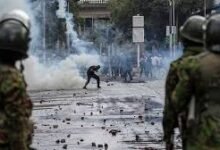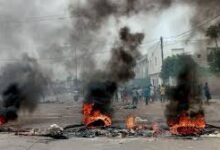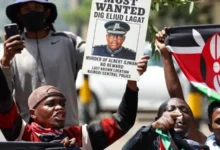Rwanda marks 25 yrs after genocide with renewed optimism

As Rwanda marks the 25th anniversary of 1994 genocide this year, Rwandan people who helped the innocent during the 100-day bloodbath are optimistic about future development of the central African country.
The annual commemoration of the genocide against Tutsi will be held from April 7 to July 4, which is in line with the period of the genocide.
Ahead of the annual commemoration named “Kwibuka”, meaning “to remember” in English, some Rwandans have come forward and shared their salvaging deeds during the genocide with Xinhua, while voicing their optimism in the nation’s future development.
“Rwanda’s future looks bright on the various fronts. The reason for this positive outlook is that the country has good leadership working to keep up the momentum (of development),” 56-year-old bishop Celestin Hakizimana told Xinhua.
After the genocide, trauma was written on people’s faces, but gradually they restored hope and one can sense what the future holds, said the bishop, who was awarded Protectors of Friendship Pact, locally known as Abarinzi b’Igihango, by the country for his outstanding acts of courage and humanity showed during the genocide.
Hakizimana resided at Saint Paul Church in Rwandan capital Kigali as a catholic priest during the genocide, where many Tutsi people sought refuge from the massacre.
He together with other priests and church guards thwarted militias’ attempts to kill Tutsi people in the church and protected about 2,000 people in the church from the beginning of the genocide until mid-June 1994, when they were rescued by the Rwanda Patriotic Army (RPA), the armed wing of the current ruling Rwanda Patriotic Front (RPF).
Now unity and reconciliation has reached appreciable levels, he said, adding that the key reason is the government’s stance in uniting all Rwandans through the National Unity and Reconciliation Commission and all citizens are treated equally as Rwandans.
The church has also played a major role in reconciling and uniting people, according to him.
“Rwanda’s future development undoubtedly will keep on improving to be much better than now,” said Gerald Mbanda, who served in the Rwanda Patriotic Army during the genocide and also worked as a journalist for RPF’s radio Muhabura.
He cited effective and transformational leadership, hardworking people, home-grown solutions as reasons for the prospective.
During the genocide, Rwandan media were used to incite people to commit genocide, while Muhabura played a role to save people from being killed, said Mbanda.
-Xinhua






